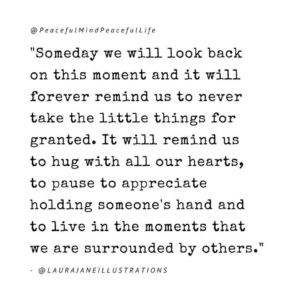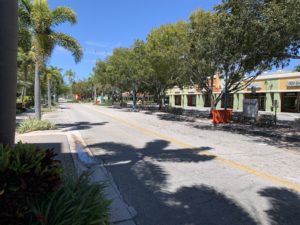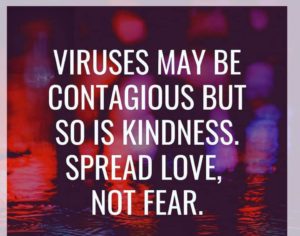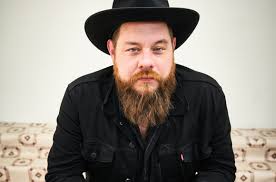
It’s challenging to work at home.
All.
Day.
Long.
Your Guide To The Delray Beach Boca Raton Lifestyle
Boca Raton and Delray Beach punch well above their weight class when it comes to culture. Both cities are home to museums, world class libraries, art exhibits, concerts, dance, theater and more.
Most of the time you won’t have to leave home, but if you do the greater South Florida area features some of the best cultural venues and opportunities in the world.

It’s challenging to work at home.

Empty downtown streets in the middle of season are a stark reminder of the toll of Covid-19
A few months ago, we attended the opening of Rex Baron, a new restaurant in the Town Center Mall.

“I believe we will soon see leaders using the language of reconciliation, of healing and unifying. Perhaps the noise of the present has been drowning out the voice of reason—the voice of the future that is still there.” —Frances Hesselbein, chair of the Hesselbein Leadership Forum at the University of Pittsburgh and former CEO of the Girl Scouts of the USA.
I admire Frances Hesselbein.
I read her leadership themed email every day.
She is optimistic.
Leadership by definition is optimistic.
We have been missing the voice of the future for a long time in our community and that absence has created a tremendous amount of damage. When you stop focusing on the future it passes you by. You tend to get bogged down in the mundane daily battles that blur with time and don’t add up to anything productive.
It’s the day after the Delray Beach municipal election—another bruiser that did little to elevate the conversation around town and a lot to take us further down the “hey, let’s continue to hate each other” rabbit hole that simply does not work.
So let’s congratulate Vice Mayor Shirley Johnson and newcomer Juli Casale on their victories and hope that in the midst of a huge national crisis, we are able to come together in Delray.
But before we move on and the election fades from our memories, we should do a brief post-mortem.
So what did we “learn” over the past two plus months of intense campaigning?
Here’s a brief primer in case you might have gone numb.
Election Narrative: All developers and all development is Bad—It doesn’t matter what the project is, it’s all no good. Developers are rapacious, corrupting criminals and somehow we’d be so much better off without them.
Reality: Without investment we’re dead.
Healthy cities need to grow their tax base. Healthy cities need to create jobs and they need to offer housing especially attainable housing so that families and young people have a way of becoming part of our community. We need good development, smart growth, attractive design and policies that promote economic and environmental sustainability. We didn’t get that discussion in this election cycle or in past cycles either to be fair. And until we have that conversation as a community, we are doomed to keep slinging a lot of lies and innuendo at each other. How sad for us. How unproductive. We need to do better and we can do better.
Election Narrative: Business interests— but especially developers —are a “special interest” and therefore not worthy of participating in our local elections.
They shouldn’t make a donation to a candidate who they think might be good for Delray; they can however continue to pay taxes and shut their mouths when it comes to endless approval processes and endless insults relating to the damage they are allegedly doing.
So it doesn’t matter that maybe you hope to exercise your property rights or whether you are following the city’s codes or acting on a vision…. say to jump start the Congress Avenue corridor or create a job or provide a home for a young family. The message is clear: how dare you. I’ve met a slew of developers over the years. Some were terrible. I mean lock the doors, check your wallets and take a shower after meeting them bad. And some were terrific.
Reality: In my experience, the good ones don’t want to buy anyone and would never do so. That’s one of the reasons they’re good. They believe in their projects and their vision and are willing to take risks to make things happen.
They don’t mind tough standards as long as the playing field is level and the process is not endless. Candidates often decry “developer money” flowing to their opponents, but why would developers support candidates who base their campaigns on stopping development? Not bad development, all development.
Election Narrative: Endorsements are worthless and reflect poorly on the candidate who receives them.
So if the police and fire union endorses you, it’s only because they want bigger pensions and higher salaries. It can’t be because you have been supportive of police and fire or they think you’d best serve the people of the community they are sworn to serve and protect.
Reality: Never mind the fact that in the last contract negotiation they agreed to give up benefits. Never let the facts get in the way of a good mail piece.
Let’s pretend that it makes sense to portray our police officers and firefighters as mercenaries. Hey I get it, unions and all. But, I’ve known two-plus generations of officers and firefighters; they care about Delray and will do what’s right for the city when it comes to crunch time. If you think the best way to “deal” with them is confrontation you are wrong.
Election Narrative: Challenger vs. Corrupt Establishment
We can’t discuss issues in any kind of depth because we get caught in the endless spiral of attacks and counter-attacks.
So here’s how it goes: Challenger (usually inexperienced with little in the way of a civic resume takes on “establishment” candidate (which is code word for someone who has spent at least a few years working in the community or serving in office).
Challenger attacks record, character and integrity of their opponent. Opponent feels compelled to strike back and call the challenger inexperienced, a bully and a liar. And so it goes down into the gutter.
To be fair, in this particular cycle, several of the challenger candidates ran very positive campaigns—a few didn’t. All are to be commended for running because it’s a huge commitment. I hope commissioners seek to put several of the candidates on boards where they can get experience and learn more about the city they seek to lead.
There’s a lot more to discuss. Campaign finance reform, an apparent disconnect between the stated level of spending and the amount of mail we receive, the divisions in our city. Especially the divisions and the need to move past issues once they are decided.
The re-elected, the newly elected, the incumbents and we the people have an opportunity here to heal those divisions or at least agree to disagree in a more civil manner.
Our first order of business is to make it through the virus—which is sure to change our world and our local community in ways we can’t even begin to fathom yet.
But this too shall pass—and we have a responsibility to each other to find a way forward together.
The election was close—and it was a split decision. Which means there is an opportunity for all “sides” and viewpoints to reach out and be inclusive.

I’m quite sure you don’t want to read another thing about the coronavirus.
And so, this column is not about Covid-19, but about the capabilities and vulnerabilities of our local community.
Despite the hasty and immediate resignation of Fire Chief Neal DeJesus last week, our Fire Rescue department is top-notch as evidenced by its recent accreditation and by the stellar service we see every single day of the year, 24/7.
It’s during times like this when you appreciate the high quality of our front line public safety professionals. You appreciate the training, the educational requirements, the tough hiring process and the culture of caring that has been nurtured for decades and carries into the present despite some upheaval at the upper ranks.
Same with our police department, which I’ve noted on many occasions, are the unsung heroes of Delray’s revitalization and the guarantor of our future success. You cannot have a future without a sense of security. People won’t live here, invest here, open for business or raise their families in a place where they don’t feel safe. So while we have our fair share of problems, the men and women who protect and serve us are more than capable and for that we can be grateful.
As a result, I will always support policies that ensure that we can field the best possible public safety departments. We must continue to invest in talent, equipment and training. It’s worth it–especially in times like these. But in less stressful times as well. When you dial 911, you want to be assured that the very best are showing up at your door within a few minutes.
I also think we are fortunate to be in a community with several outstanding hospitals—Delray Medical Center, Bethesda, Boca Regional and West Boca Medical Center—all have their strengths.
I can speak personally about Delray Medical having served 7 years on the hospital’s governing board.
Each meeting was a mini-education on the medical needs and capacity of our community as we did our best to support the efforts of the hundreds of professionals who handle everything from Class 1 trauma’s to appendectomies.
I think of rural areas that are under served by doctors, nurses and specialists and I think of how fortunate we are to live in a community with an abundance of medical and scientific talent.
By no means am I underplaying this pandemic. It is serious and potentially deadly—especially for the vulnerable in our community of which there are many.
But I do think it is helpful to understand and appreciate that we live in a community reasonably well-equipped to handle what’s thrown at us.
I joked to my wife that we live half the year in terror—fearful of monster hurricanes for months on end and what it might do to our lives and livelihoods.
Now, because of a Wuhan market filled with strange meats, the St. Patrick’s Day Parade in Delray is cancelled along with most other things we’ve come to enjoy and rely on to fuel our economy. I know it’s not as simple as that, but whether we like it or not, we are intertwined with the rest of the world and with each other.
Sometimes that can be really good (cheap goods, trade, foreign investment) and sometimes it can bite us.
As this crisis unfolds, please look after your neighbors and yourself. Also please keep in mind our local businesses. They are sure to be taking a whack from this situation. They will need our support going forward.
So will our front line city employees, first- responders and health workers who will tasked with so much in the coming days, weeks and possibly months.
Last week, my friend went to Publix and saw a cashier abused and insulted because the store was out of toilet paper and soap. He made sure to compliment the employee and thank her for her service.
We are all stressed. It’s important that we maintain our compassion.
Thinking of you all during this difficult time.

In a few days, voters will head to the polls in Delray Beach to fill two seats on the City Commission.
I’ve been observing elections in this town for 33 years now and friends can I tell you something? They are getting worse every year.
Nastier.
More expensive.
Devoid of ideas and vision.
It wasn’t always like this.
It doesn’t have to be like this.
And if we are smart, steps will be taken to change the tone of politics in our community.
Because make no mistake, these kind of campaigns leave a mark or should I say a stain on the soul of our community.
Delray Beach is at a crossroads.
The city needs hundreds of millions of dollars of infrastructure repairs and upgrades, sea level rise is a real threat to coastal neighborhoods, homelessness appears to be on the rise, our city staff has suffered from rampant turnover (the fire chief quit yesterday) and we seem to have stopped prioritizing economic development—as evidenced by an empty Office of Economic Development and ugly attacks on just about anyone who wants to invest in Delray Beach.
Despite the serious issues outlined above (and there are more) the three biggest issues in this election appear to be the positioning of a valet stand, how to handle traffic coming and going from a popular shopping center and the settlement of a lawsuit related to our Delray ATP tournament, a lawsuit– mind you– that the city was told it had no chance of winning despite spending hundreds of thousands of dollars. Your dollars.
We can and must do better.
Regardless of where you stand, we all seem to agree that Washington is an intractable mess.
The potential for change, solutions and innovation resides in our cities. But it seems our city is sliding more and more into the abyss of division and dysfunction. We are majoring in the minor when we have big rocks to move.
I’m sure the valet stand issue has merit and I know the traffic flow in and out of Delray Plaza is important to my good friends in Tropic Isle. But, there’s more to Delray, much more.
Where’s the vision?
Where’s the aspiration?
How will we weather climate change?
Do we care about jobs, attainable housing, and better schools?
Or is it all about development and traffic?
We act—if you believe the election mail pieces and social media chatter—as if all development is bad, no more is needed and that somehow we can resist change and pretend that property rights don’t exist.
Let’s talk about those issues shall we?
I get it, people hate traffic and congestion.
They also fear over development and losing the charm of our village by the sea. So do I, as do most of the people I know on both sides of the local divide. But we are not having meaningful conversations on these issues. We are yelling past one another. And it is getting us nowhere.
All candidates say they have a cure for traffic—but the truth is they don’t.
Personally, I find I can get around Delray pretty well, but I can’t say the same for Glades Road in Boca Raton or I-95 which can be parking lots.
Is Atlantic Avenue congested? You betcha. A lot of people worked very hard to make it so. You know what the opposite of congestion is? Empty streets and empty storefronts.
So sure, it takes some time to cruise the Avenue, but if you want to zip around town, please use our grid system, it works pretty well. We made a choice years ago to create a bustling, dynamic and vibrant downtown and we pulled it off.
There are trade-offs when you do that; especially when you succeed and Delray succeeded.
A pretty cool little downtown has been created and it has endured through the Great Recession, hurricanes and all sorts of political shenanigans.
So we may have to slow down– especially in season. We may get caught in traffic if we decide to take Atlantic from Swinton to A1A.
Next time you get annoyed—and I get annoyed too sometimes— consider all the jobs that have been created, all the tax dollars that have been generated, all the great businesses that have sprouted and think about how much more your home is worth than the days when this town was known as “Dull Ray”— a time when you could have gone bowling on Atlantic and not hit anything because it was empty and depressed.
So yes, the bridge will go up every 15 minutes or so, but guess what? It does go down and we will make it across. Parking may be tough—but that’s what they call a good problem to have. It means that people are flocking to your city’s central business district ringing cash registers and supporting the local economy.
We can add more parking infrastructure and pay for it too– if we want too. We can move toward solutions on issues big and small if we insist that our elected officials stop focusing on politics and each other and start focusing on serving the community. All of the community—not just their base of supporters.
As for development, I can understand the concern. But I think the way we are having this conversation is all wrong. All we have to show for it is years of frustration and anger.
Here are some facts to frame the situation:
Things change, it’s the only constant.
Property gets developed and redeveloped.
Owners of property have rights to develop that property within the rules set forth in our codes.
We do not allow tall buildings like our neighbors in Boynton Beach and Boca Raton do. But we do allow buildings that are 54 feet in height in some areas of our downtown.
I have never seen a developer get a height variance. Never.
I have never seen them get a waiver for density either.
I have seen developers create ridiculous inconveniences for long periods of time during construction and that’s something that needs to be looked at.
We had one project that took up a block and a half of parking for a decade right smack in front of small businesses and right now we have a hotel project blocking half of Pineapple Grove which damages a lot of very cool independent mom and pop businesses. There has to be a better way.
There also has to be a better way to discuss development and a better way to disagree on the issues without burning each other’s houses down.
We have to elevate the conversation and not make development a zero sum game where either the investor or the residents lose. We can create win-win scenarios but it will require us to agree that we must be civil when we discuss development or anything else controversial in our community.
Just because you favor a project does not mean that you are on the take or corrupt, it might just mean you like the project and feel it’s needed. Conversely, if you oppose something you are not necessarily a NIMBY, unless of course you oppose everything then maybe the shoe fits.
All I know is right now, everyone seems miserable and I think we need to reframe how we discuss these issues.
We have had a few spectacularly crappy developers come to town. They tend to not build their projects, because they don’t have the requisite skill set to do so.
But we have also had some really talented developers work in Delray, a few who have chosen to live here. While we have had a few developers who have acted like strip miners, taking every morsel and giving little to nothing back, many have been extraordinarily generous with their time and their philanthropic donations.
They have created some pretty special projects too. They have contributed to the vibrancy and to the tax base while taking spectacular risk.
If we chase away all development and treat every project as if it will kill Delray–we can count on taxes increasing and needed projects and services not being funded.
We desperately need— and I believe we desperately crave —real discussion on things like design (example: should we have modern homes on historic Swinton Avenue?), traffic flow, floor area ratios, density and uses.
Right now, there is a one way conversation taking place on social media and in the campaigns that tends to be lacking in facts, context and balance. Discussions about our CRA are especially nauseating because that organization has been invaluable to Delray Beach. I admit to bias on that front, but if you scratch beneath the surface on just about everything that has been accomplished in east Delray over the past 30 plus years you will find the CRA as a driving force for good. Has the agency been perfect? Not on your life. But subtract the agency from the Delray story and our story looks a whole lot different and I would argue a whole lot worse.
But everything begins and ends with the five people we elect to the commission. Get it right and good things happen. Get it wrong….well you can figure it out. Either way, we have to improve the tone of the town.
I make this statement based on watching this stuff for 33 years.
The fact that we are locked in a cycle marked by the politics of personal destruction ought to give us all pause. Because this becomes a spiral to the bottom.
Not only will good people not run for office, they will shy away from the process entirely which means serving on boards, volunteering for key non-profits etc. I would argue this is already happening.
Without casting aspersions, we are seeing some of the ripple effects of the nasty political climate in the sheer number of inexperienced candidates who are running for office in recent cycles.
I maintain and strongly advise that the job of city commissioner is not an entry level position. It is hard to be a good commissioner if you have not put the time in to learn about how the city functions, where it has come from and where it’s going.
You can be educated, sincere, driven and caring—but there is no substitute for time spent in the trenches. There are many candidates running this year that we have never seen involved in past visioning exercises, key boards and organizations. They are introducing themselves to the community in one breath and asking for your vote in the next.
It is important for candidates to have experience before they are given the keys to a $100 million plus budget and responsibility for major decisions that impact our quality of life and our future.
It is also important for the community to get to know the candidates. Do they play well with others? Will they show up at meetings, will they do their homework, can they listen? If they lose a vote, will they move on or will they declare war on those who disagree with them and spend their terms seeking revenge?
There’s simply no way of knowing if we have not seen how they approach community service.
By the way, there are examples for every terrible scenario I just listed—commissioners who are AWOL at key meetings and commissioners or their surrogates who hunt, harass and bully those with whom they disagree.
I am not advocating that we turn politics into some sort of genteel afternoon tea; that’s unrealistic and it never existed even in the good old days. So if you are a bully you should be called out for your behavior. If you have a past you probably should expect it to surface and if you have voted poorly or made mistakes you should be called to account.
Issues are fair game too.
Tough debate on the issues is fair, but we seem fixated on personalities, feuds and alliances.
Lately, I haven’t seen much substantive debate. So I really can’t tell where the candidates stand other than they oppose taxes, crime, traffic and developers. I don’t see any real solutions or any new ideas.
We need both.
Desperately.
I would add that we need aspiration as well.
If you’re ambition as an election official is to block every project, I’d like to ask what you’d like to see happen. If your unofficial tag line is “I’m in the boat, pull up the ladder” when it comes to housing projects, I’d like to know what we tell young families, police officers, teachers and our kids when they ask us where they can live in our city.
I’d like to know how you will pay for hundreds of millions of dollars in infrastructure repairs and needed services if you don’t build the tax base, down zone already underdeveloped corridors and pledge to cut taxes. If you think you can, you are either lying, terribly naive or you are a magician. I haven’t met too many magicians running for local office.
I think you get the gist.
Wednesday is the day after the election. That’s when—win or lose—we ought to begin a new and better conversation.
The current model isn’t working.
It’s not village like, it doesn’t address our needs and it won’t position us to seize opportunities or solve problems.

We’ve lost an hour of sleep.
And it feels like jet lag.
It’s s not good for you either. Statistics show that heart attacks increase 24 percent the day after Daylight Savings Time. That’s today, so be careful.
I find that statistic astounding.
But it’s not the only Daylight Savings Time fact that is surprising. SAT scores are said to fall if you take the exam close to the time change, cluster headaches increase and car crashes too–so again be careful today.
Personally, once I adjust I like that we will get extended daylight. It’s nice to come home after work and have a few hours of sun left to take a walk. It’s also easier to drive when it’s light out.
So springing forward has benefits, it’s the falling back I can do without.
As for sleep, it’s so important to our health and it’s something that Americans struggle with mightily.
I’m one of those people.
I can fall asleep easily, I just can’t stay asleep.
I’m up for good either 4 am or 5 am every day, which has its benefits and it’s downfalls.
My early hours gives me time to write this blog for instance. It’s something I enjoy and I’m appreciative if you read along.
But the lack of sleep sure makes me tired and I know it’s not good for my health.
I’ve read a lot about sleep because I’m concerned. A lack of restorative sleep can lead to all sorts of problems.
I’ve tried different things. But I’ve avoided others such as sleeping pills because I’m just not comfortable relying on a drug.
But I’m hopeful and willing to try other things to see if I can squeeze out another hour or two a night.
If you have any tips, feel free to share.
I also know I’m not alone. Some of my friends struggle with sleep and millions of Americans do as well.
It didn’t use to be this way, I used to sleep soundly and for 8-10 hours a night. So perhaps there is a way back.
Until then, I plan to make the best of it with early trips to the gym, some reading, a lot of writing and some thinking and quiet meditation time too.
But it’s a long long night when you keep popping up.
For those of you who sleep soundly, count your blessings. Because the rest of us are counting sheep.

Every child deserves a home.
There’s a silent crisis in Palm Beach County.
It’s not something most us see, but it’s there and it’s very real.
I’m referring to a foster care crisis right here in our backyard that is both impacting our children and straining the resources of non-profits and agencies tasked with their welfare.
I’ve gotten to know one of those non-profits 4KIDS through my good friend Karen Granger who is working with the agency. 4KIDS recently moved to The Arbors office building on Congress Avenue and they have done a great job reaching out to the community. (Full disclosure: our company owns the building).
Each month, 4KIDS hosts a “champion’s lunch” in their brightly colored and warm office.
They’ve also hosted holiday season gift events and Adoption U, where my friend City Commissioner Ryan Boylston, has spoken about his experience as an adoptive parent.
The Champion’s lunch is a chance for 4KIDS to engage community members and build awareness about the crisis and to brainstorm ideas on how to support the cause. Last year, despite all that 4KIDS is doing (and it’s a whole lot), they were forced to say no to 380 kids in our community. Because of the lack of foster homes, our most vulnerable children are sent to shelters or group homes often far from their home county.
That means being away from their friends and schools—a trauma that cuts deep.
It also conflicts with 4KIDS’ mission which is to provide a home for every child.
At a recent lunch, I had a chance to chat with Karen and 4KIDS CEO Kevin Enders about the organization’s philosophy and culture. It’s impressive.
The notion of home is such a simple concept, but it’s a profound one.
Home– according to 4KIDS– is a place to belong, filled with love and acceptance. It is also a place to heal and have your unique needs met.
As a result, 4KIDS has developed a comprehensive continuum of care model that serves children from birth to age 25. That continuum includes foster care, life skills training for young women with unplanned pregnancies, emergency care to meet the immediate needs of children removed from their homes due to abuse and neglect (there’s also a spike in these cases), therapy and care for young adults “aging” out of the foster care system to ensure that they can live independently.
It’s a big job. A really big job.
But as I’ve gotten to know the 4KIDS team, the passion and teamwork is evident.
This is a terrific organization, with great leadership, strong community support and strong ties to faith based communities.
My company is proud to support 4KIDS…if you want to get involved— and you are needed and there are many ways to help–please visit www.4KIDSofSFL.org
You won’t regret it. Our children need us.

Bricks and mortar is changing retail , but retail is not dying.
We’ve seen the headlines.
Macy’s closing stores.
Bed, Bath and Beyond closing stores.
Forever 21 going bankrupt (but being revamped).
It’s a “retail apocalypse” screams the headlines caused by Amazon and the big bad world of e-commerce.
Yes, the numbers look tough for brick and mortar retailers. More than 9,000 stores closed in 2019 which was more than 2018 and more than 2017—all record years.
Ugh…
But there’s a deeper story here.
My eyes were opened recently after reading a report by University of Chicago economist Austan Goolsbee. And as we plan our local cities and lament the lack of retail in places such as downtown Delray and Boca Raton we need to pay attention to societal trends and adjust our expectations and maybe our codes accordingly.
First, there is no doubt that e-commerce is growing by leaps and bounds. Twenty years ago, about $5 billion worth of goods were purchased each quarter online. Today, that number is about $155 billion per quarter.
But while that’s an impressive number it still represents only 11 percent of the entire retail sales total.
So almost 90 percent of goods are still purchased in a brick and mortar store and of that percentage, more than 70 percent of retail spending in America is in categories that are fairly well insulated from the internet due to the nature of the product or because of laws governing distribution.
These categories include cars, gas, food, beverage, drugs, home improvement and garden supplies.
So what’s going on out there?
Why is it so difficult for physical retailers to make it in the 2020s?
Goolsbee puts forth three societal trends as causes.
The rise of Big Box Stores—super centers and warehouse stores such as Costco actually ring up more sales than Amazon.
Income Inequality—as the middle class has been hollowed out, stores that cater to them have suffered or died. Retailers aiming at the high and low end of the income scale have found some success. So “dollar” stores have grown along with some high end designer retailers while retailers serving the once vast middle class— J.C. Penney and Sears have suffered.
Services Have Grown, Things Have Not—According to Goolsbee, with every passing decade Americans have spent less of their income on things and more on services and experiences. We are spending more on our health, more on restaurants, education, entertainment and business services than we used to and less on products sold in stores.
Here’s a cool stat: In 1920, Americans spent 38 percent of their income on food and 17 percent on clothing—almost all through traditional stores. Today, 10 percent of our income is spent on food and clothing eats up just 2.4 percent of our incomes.
So how does this affect our local communities?
Well, it might explain why Atlantic Avenue has become more of a food and entertainment destination than a traditional downtown where people go to shop for things like clothing and decorations.
The issue becomes more acute when property values sky rocket alongside rents. It’s hard for traditional retailers to pay high rents per square foot, especially since we still have a seasonal economy.
While we all (well some of us) love mixed-use development, it’s challenging to make retail work due to economic and societal trends. Of course, mixed-used does not have to be exclusively housing and retail, it can also include food and beverage, co-working, an educational use or something in the health or fitness space.
I have some very smart friends who have succeeded in real estate and they are having a hard time imagining what will happen to all the retail space we have built in Boca, Delray and Boynton Beach.
We definitely have a need for more housing, especially attainable housing and some of the overbuilt retail space can surely be used to add to our stock.
But that’s going to require some deft planning and a whole lot of political courage/hard work to convince residents who already live here why we need to make room for more people. P.S. if we do want our existing mom and pop retailers and family owned eateries to survive, density cannot be a dirty word. Let’s repeat: density done right is not a dirty word.
There was a time in Delray when density was encouraged in our codes and plans . And guess what?
It brought the town back to life.
Al Gore would call that an inconvenient truth, candidates running for local office would sooner break out in hives than embrace the concept but density designed properly and used strategically can do much to support the mom and pops and independent merchants we say we cherish. It’s also better for the environment than traffic-inducing sprawl like development.
Events too play a role too, by bringing people to town where they might stop and shop or come back to check out stores they might see while attending an arts show or festival.
As the son of an independent pharmacist, I have a deep appreciation for how hard it is to make it in retail and how important good retail is to a vibrant and vital central business district.
As we sift through the barrage of campaign attack ads already hitting our mailboxes and inboxes, it would be useful to see if any candidate offers ideas on how to grow the local economy in a high rent, seasonal environment with tons of competition from nearby cities, without an Office of Economic Development (the two member team resigned and have not been replaced) in a changing world being disrupted by technology and things we can never anticipate such as coronavirus.
It’s not an easy challenge, but real leaders…effective leaders…. ask the questions that matter and focus their communities on issues of substance. Or we can continue to accept vapid statements saying we are against crime, for good schools and against development.
Give me substance over tired canards.
It’s time.
We live in changing and complicated times. We need ideas and leadership.

At 6’11” Reilly Opelka is the tallest player on tour. He’s also the new Delray Beach Open champ.
Things We Loved In February
We know the month is not quite over, but close enough.
Attending the Delray Beach Open.
Nothing like watching world class tennis under the stars on a beautiful February night.
Kudos to Match Point for producing a great event.
The addition of hometown fave Coco Gauff was a master stroke. Coco played an exhibition under the lights against the NCAA champion. Great stuff.
Congratulations to the Bryan Brothers on their record sixth Delray Beach title. The brothers—arguably the best doubles duo ever—come to Delray every year and have been great supporters of the event and the city. They will be retiring so it was great to see them go out with a win.
Also congratulations to Reilly Opelka who battled weather and determined opponents to claim the singles title. He may be someone to watch. He is hard to miss at 6’11” with a serve in the 140 mph range. He has a big future and the Delray event is becoming known as the place that launches stars: i.e. Frances Tiafoe, Kei Nishikori.
Seeing Doris Kearns Goodwin at FAU. She packed them in like a rock star and we could have listened to her for hours and hours. Just a wonderful storyteller.
Having the great and vastly underrated Steve Forbert play The Arts Garage.
A great performer and wonderful songwriter, Forbert is a joy to watch and listen too. Although we were forced to give our seats away, we were told he was great and drew a big crowd. I’ve seen him several times and won’t miss him again if he comes back this way.
Art on the Square—in a word: terrific.
The new Whole Foods on Linton looks great. A most welcome addition.
Another whopper of a real estate deal: Menin Development’s $7.3 million acquisition of Johnnie Brown’s.
That’s not a typo.
February weather. We are reminded why we live here. Crisp mornings, gorgeous days and cool nights. And don’t forget the Florida sunsets.
Black History Month is a good time to learn about some of our local African American icons.
Visit the S.D. Spady Museum for a great primer and see if you can find C. Spencer Pompey’s book “Many Rivers to Cross.”
We wish Pedro Andrade well with his new restaurant Valentina’s Pizza and Pasta on Congress Avenue in Lake Worth Beach.
Pedro did an amazing job serving the community for years at Anthony’s Coal Fired Pizza never turning down a good cause. We plan to visit his new place ASAP.
We had some monumental birthdays in February.
Zack Straghn, a long time civil rights leader, celebrated his 92nd birthday and Bob Levinson, an author, business leader and philanthropist turned 95.
Lots of wisdom and accomplishments between those two gentlemen.
We wish them many more years of making a difference.
We tried Cena on 7th Avenue and it was wonderful.
A great place to spend Valentine’s Day.
I had the pollo parmigiano and it was spectacular. It’s also huge– so we made two meals out of it.
Don’t miss the buttered noodles and the tartufo.
Heartfelt condolences to the Dubin and Evert families on the loss of Jeanne Evert Dubin.
Jeanne was a really nice person and was a terrific tennis player herself during a brief pro career rising to number 28 in the world and top ten in the United States.
She was an owner of Dubin & Associates which manages the Delray Golf Club and Delray Tennis Center.
On a personal note, Jeanne was just a super nice person. She loved tennis, preferring to be on the court teaching or leading tennis leagues. She had a quiet influence.
She will be deeply missed.
We also offer sincere condolences to the pioneering Love family on the loss of Marsha and Barbara Love.
Until next month…..

Nathaniel Rateliff
Two weeks along, I find myself unable to let go of Valentine’s Day.
Unable to let go of things I love.
Or maybe I’m just more appreciative than usual.
I’m writing this sitting in my backyard in Delray Lakes gazing out over a lake listening to Nathaniel Rateliff sing “And it’s Still Alright” and watching egrets wade into the canal on a beautiful winter day. Florida in February, when it’s right and today is right, can’t be beat.
The song is sad yet hopeful. It’s about the artist burying a friend and losing his wife. Heavy stuff. But it’s still alright. There’s hope in the darkness, there’s a path back from the sadness.
We have it pretty good here in Florida. We have it pretty good here in Delray Beach.
During the hustle and bustle of the week, I can sometimes lose sight of how good.
I sometimes forget to slow down long enough to absorb the sights and the sounds of life in what most people would describe as paradise.
But not this year. This year I am going to appreciate the little things.
A text from a good friend who says she is thinking of me and my family.
A call from a cousin I haven’t spoken to in awhile.
Watching my two dogs sleep and my birds sing (in between making a huge mess).
I scroll through social media and it’s an odd cross between a highlight reel and a hate rally.
People posting pictures of their weekend trips and outings and the usual suspects ranting on the political pages.
Today, I’m turning them both off.
I’m resolved to write more, to read good books, to listen to more great music.
I’m set on more drives on A1A, more trips to parks, more long walks with the love of my life and more time with family and friends.
More meaning. More good times.
Lord willing….it will still be alright.
Copyright © 2025 · Genesis Framework · WordPress · Log in